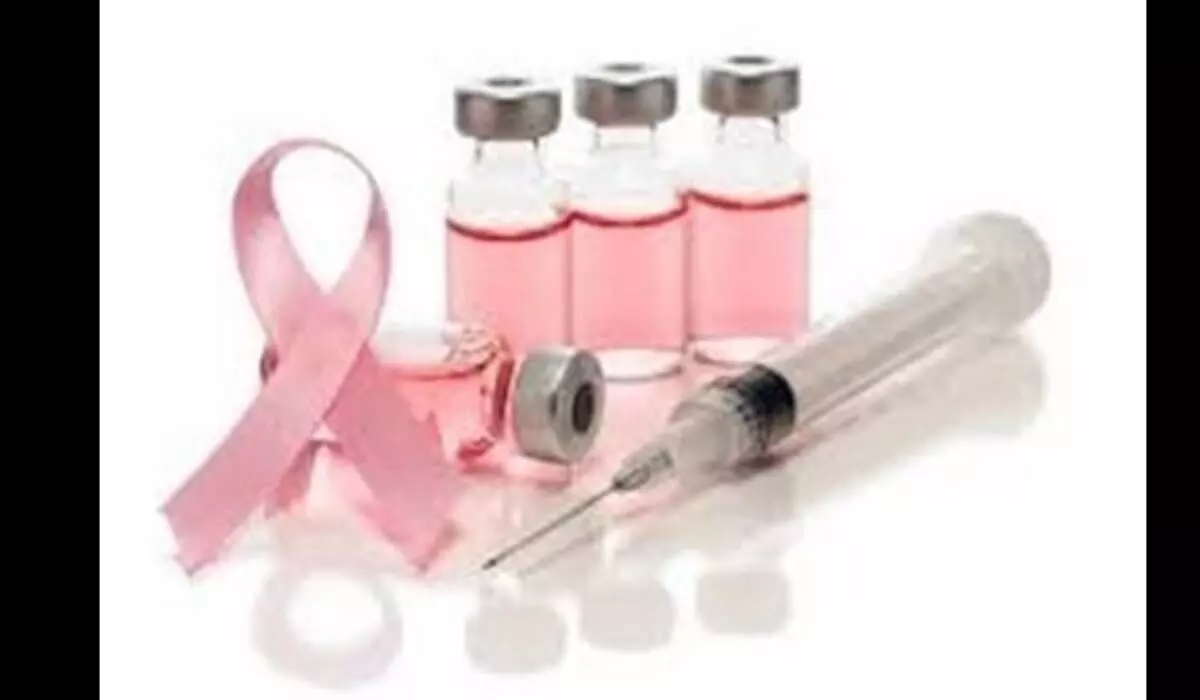Breast cancer vaccine trials show promise
Researchers and doctors are making significant progress in developing breast cancer vaccines that could potentially make mastectomies a thing of the past. Clinical trials in the last six months have shown promising results, with several studies focusing on preventive vaccines for breast cancer. The goal is not only to treat cancer but also to prevent its occurrence altogether. Nora Disis, an expert in breast cancer immunology, believes that vaccines to treat or prevent the disease could be available within the next five years. These vaccines could eventually be used to protect women with a genetic risk of developing breast cancer.
image for illustrative purpose

Researchers and doctors are making significant progress in developing breast cancer vaccines that could potentially make mastectomies a thing of the past. Clinical trials in the last six months have shown promising results, with several studies focusing on preventive vaccines for breast cancer. The goal is not only to treat cancer but also to prevent its occurrence altogether. Nora Disis, an expert in breast cancer immunology, believes that vaccines to treat or prevent the disease could be available within the next five years. These vaccines could eventually be used to protect women with a genetic risk of developing breast cancer.
One study led by Disis focused on a vaccine that trains the immune system to recognize a mutated form of the protein HER2, a common driver of breast cancer. The study demonstrated that the vaccine was safe and showed promising results. After a decade, 80% of the vaccinated women were still alive, compared to a 50% chance of dying from the disease within five years for those who did not receive the vaccine. Larger studies are now being initiated to further validate these findings.
Other researchers are also working on vaccines that could prevent breast cancer in individuals at high risk. These trials involve vaccinating women before preventive mastectomies to assess the immune response in removed tissue. It will take years of follow-up to determine if the immune response generated by the vaccine is effective in preventing cancer.
While these studies show promise, large-scale late-stage trials will be necessary to prove the preventive efficacy of these vaccines. Such studies require significant funding and support from advocates and patients. The data generated from these trials should motivate further investment in this area, bringing us closer to a future with reduced breast cancer incidence.
Patients are eagerly participating in these trials, demonstrating their willingness to contribute to the advancement of breast cancer prevention. The hope is that these vaccines will provide alternative choices for women, allowing them to delay surgery or potentially avoid it altogether while living cancer-free.

